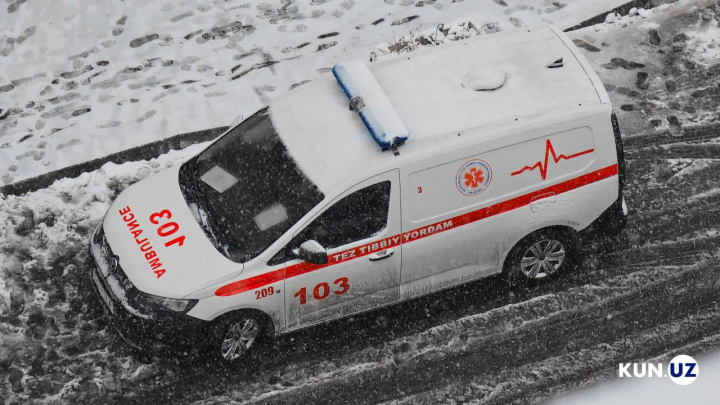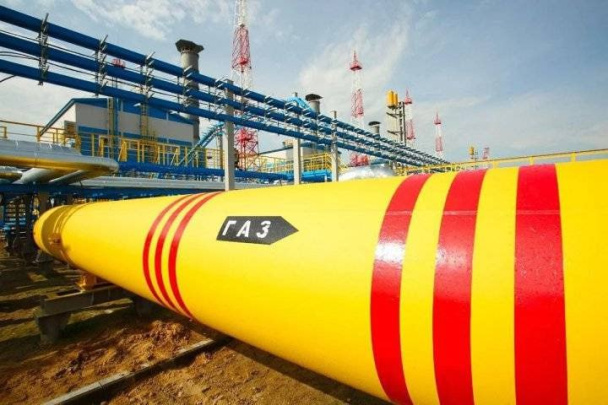Weekly digest: Senior officials dismissed, plans to boost night economy, new railway transport law and more
This week several senior officials in Uzbekistan have been dismissed in connection with an alleged assassination attempt on Komil Allamjonov, Uzbekistan has implemented a decree to enhance private sector participation in education, and finalized negotiations with China, accelerating its accession to the WTO. The Strategic Reforms Agency of Uzbekistan has unveiled a plan to boost the country's night economy, Central Bank has announced plans to reduce inflation to below 5% by 2026 and proposed a cap on individual ownership of bank cards to address fraudulent activities. Russia announced plans to enhance natural gas exports to Uzbekistan through Kazakhstan. Uzbekistan has adopted a new railway transport law and has ratified a security agreement with China.
High-ranking officials dismissed amid assassination attempt fallout
Several senior officials in Uzbekistan have been dismissed in connection with an alleged assassination attempt on Komil Allamjonov, a former senior official in the Presidential Administration. Among those dismissed are Colonel Akhrorjon Atkhamov, Head of the Criminal Investigation Service within the MIA’s Operational-Search Department; Doniyor Tashkhojayev, First Deputy Chief of the Tashkent Main Department of Internal Affairs; and Timur Sobirov, Head of the Organized Crime Department in Tashkent.
Additionally, Sarvar Ashurov, an aide to the Prime Minister, and his brother, Alijon Ashurov, head of the SSS Internal Security Directorate, have also been removed from office. Reports suggest that the Ashurov brothers obstructed the investigation.
Seven suspects have been identified in the case, with five detained in Uzbekistan. Javlon Yunusov, one of the two suspects declared wanted, was apprehended in South Korea and extradited. Investigations continue as authorities probe motives and connections to the case.
Private education sector receives significant tax relief until 2030
Uzbekistan has implemented a decree to enhance private sector participation in education, offering substantial financial benefits to non-state institutions. All taxes, except social tax, will be waived for private preschools and secondary schools until January 1, 2030. Foreign professionals working in private education will be exempt from personal income tax and social tax, while customs duties on imported educational equipment, technology, and literature will also be waived.
From January 1, 2025, private educational organizations will have access to reduced-cost "A-2" teaching visas for foreign professionals. Work permit fees for these specialists will drop significantly, from 30 BCUs to just 1 BCU.
Tashkent's public transport transitions to digital payments
By January 2025, Tashkent will fully transition to cashless payments for its public transport system. Cash fares for single rides will increase from 2,000 UZS to 3,000 UZS, while electronic payments will offer a discounted fare of 1,700 UZS.
The reform includes the discontinuation of cash payments on buses and the introduction of modernized systems to streamline operations. The city administration aims to improve efficiency and promote widespread adoption of digital payments.
Uzbekistan intensifies efforts for WTO membership
Uzbekistan is accelerating its accession to the World Trade Organization (WTO), finalizing negotiations with China. By 2025, export tax benefits will be phased out to align with WTO standards.
Deputy Prime Minister Jamshid Kuchkarov stated that the repeal of tax incentives will level the playing field for international trade. Uzbekistan aims to finalize WTO membership by 2026, with ongoing negotiations involving several nations, including Russia, the UK, and China.
Initiative to develop Uzbekistan's night economy
The Strategic Reforms Agency of Uzbekistan has unveiled a plan to boost the country's night economy by expanding 24/7 public transport services, relaxing restrictions on entertainment venues, and designating tourist zones. A digital platform, "Night Tashkent," will provide information about night-time venues and services.
The initiative, set to be implemented in stages, includes infrastructure modernization and enhanced street lighting in selected areas. A presidential decree is being prepared to outline these measures.
Central Bank targets inflation below 5%
Uzbekistan’s Central Bank is planning to reduce inflation to below 5% by 2026. Inflation currently stands at 10.24% but is expected to drop as external economic challenges stabilize. The Bank aims to align its policies with international standards set by major trading partners like Russia and Turkey.
Russia to increase gas exports to Uzbekistan
Russia plans to enhance natural gas exports to Uzbekistan through Kazakhstan. President Vladimir Putin announced this development during recent negotiations in Astana, highlighting a broader energy cooperation strategy among the three nations. Investments in gas infrastructure modernization in Kazakhstan are estimated at $500 million.
New railway transport law promotes market dynamics
Uzbekistan has adopted a new railway transport law effective January 1, 2025, aimed at increasing market-based operations and private sector participation. Railway carriers can now set transportation prices independently under specific regulations, while losses in regulated tariffs will be compensated by the state budget.
The law allows private investment in railway infrastructure under public-private partnerships (PPP), expanding opportunities for private management and ownership.
Cap on bank card ownership proposed
The Central Bank of Uzbekistan has proposed a cap on individual ownership of bank cards to address fraudulent activities. Each person will be limited to five cards per bank, with a maximum of 20 cards across all banks. The restrictions are currently under review but are designed to prevent misuse without inconveniencing legitimate users.
Uzbekistan strengthens security ties with China
Uzbekistan has ratified a security agreement with China to protect classified information, reflecting deepening bilateral relations. The agreement, initiated during President Mirziyoyev’s visit to China in May 2023, is indefinite and highlights Uzbekistan’s efforts to enhance international cooperation.
Diplomatic advances in Montenegro, Croatia, and Turkmenistan
Uzbekistan has appointed Oybek Shakhavdinov as its first ambassador to Montenegro and Croatia, and Ravshanbek Alimov as ambassador to Turkmenistan. The appointments aim to strengthen bilateral relations in trade, investment, and international collaboration.
Airlines expand connectivity
Centrum Air has launched direct flights between Tashkent and Guangzhou, while Russia's UVT Aero will begin weekly flights from Nizhnekamsk to Tashkent on December 23, 2024. These routes aim to boost tourism and bilateral ties.
Related News

17:56 / 21.12.2024
Uzbekneftegaz forecasts a decrease in gas production in 2025

17:42 / 21.12.2024
A family of three dies from gas poisoning in Charvak

14:49 / 21.12.2024
Uzbekistan increases gas exports to China by 27% amid rising imports

20:11 / 20.12.2024



